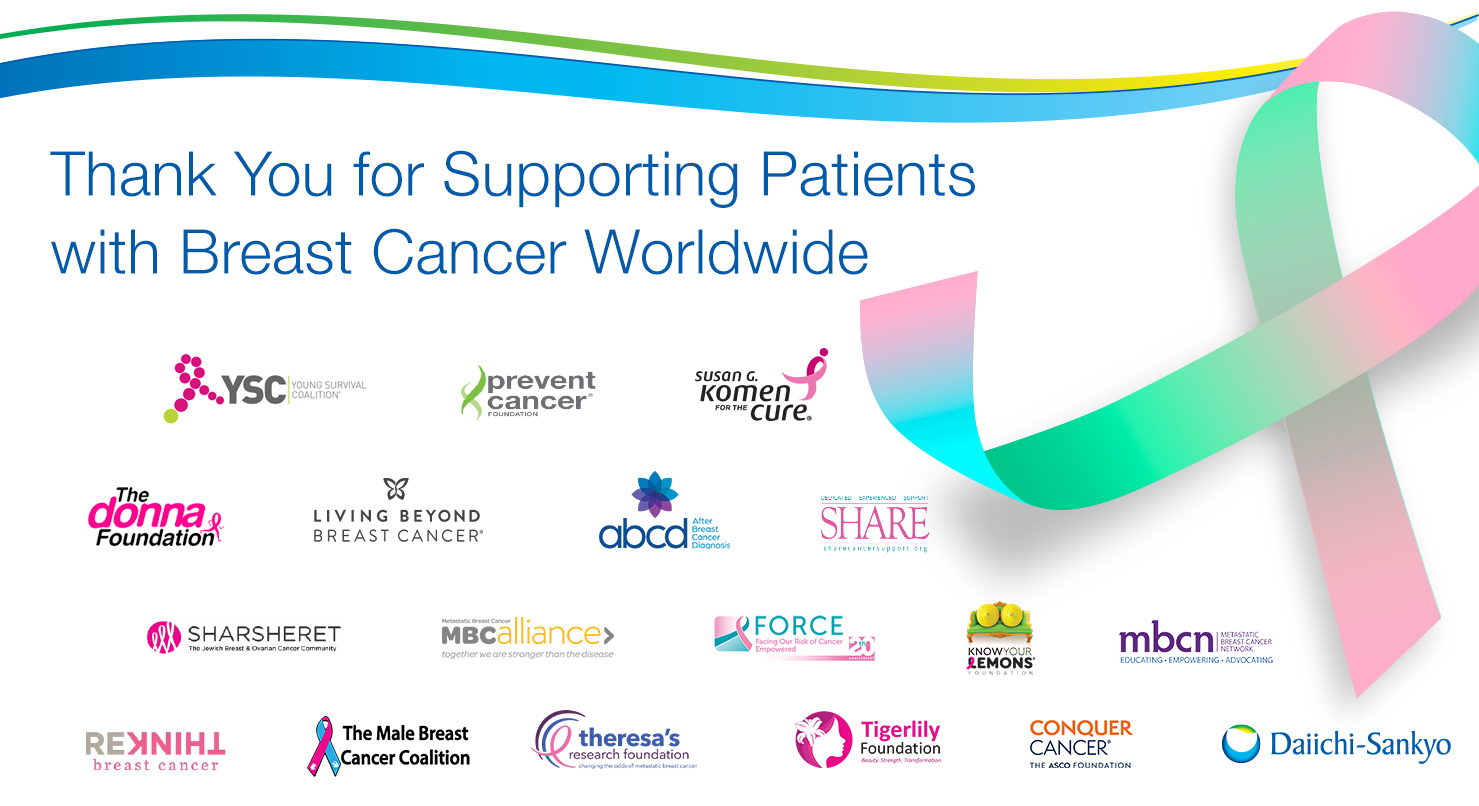BCAM - October 2020

This October, we’re standing with the many patients and survivors of breast cancer – the most common cancer for women worldwide1 – by partnering with 22 advocacy groups and global breast cancer alliances focused on ensuring patients receive the information, education and resources they need about the disease. With about two million new breast cancer cases diagnosed in 20182 and roughly one in three patients initially diagnosed with earlier disease ultimately developing recurrent advanced or metastatic breast cancer,3,4 we must ensure Breast Cancer Awareness Month is about much more than pink ribbons. It is critically important to raise awareness about the full spectrum of the disease – from early stage breast cancer and screenings to the metastatic experience, biomarker testing and clinical trials – so that patients are empowered in their individual journeys, regardless of how their disease has progressed.
In 2020, our collective awareness-building efforts are more important than ever. As COVID-19 has gripped our world, other important aspects of health – including cancer care – have been deprioritized. Patients may have delayed clinical and well visits, paused or changed treatment plans, experienced anxiety and even questioned or avoided getting a second opinion.5 We are on the precipice of another potential health crisis among the cancer community as a result of COVID-19 and deferred care and have an important job to continue educate patients with cancer.
This year has also shed new light on racial disparities and the disproportionate impacts of several diseases on communities of color. Academic clinicians cite many causes for how cancer disparities are projected to increase due to COVID-19, including lower rates of health literacy, less access to healthcare and poorer living environments.6 With breast cancer death rates being approximately 40% higher in black women than white women,7 we must give patients the knowledge and the platform to advocate for themselves and their care when facing disparities of any kind, be they related to age, stage or color. “My personal journey with breast cancer felt long and isolating at first, but as a black woman I knew I had to speak up for my health,” said Shonte Drakeford, MSN, CRNP, AGNP-C, patient, Tigerlily Foundation MBC Angel Advocate and Living Beyond Breast Cancer Leadership Volunteer. "When I was diagnosed with Stage IV metastatic breast cancer, I made sure to learn as much as I could and remain as vocal as I could from there on out. Today, I advocate for men and women with breast cancer to understand the importance of getting educated and speaking up. It’s the best shot we have with this disease."
Our purpose is to build a patient-centric environment and bring “Compassion for Patients” to life every day, by continuously engaging with key stakeholders, advocates and patients. This is our commitment to all patients with breast cancer and the advocacy groups that support and represent them during Breast Cancer Awareness Month, during unprecedented times like those brought about by the COVID-19 pandemic, and the whole year through.
- 1. Breast Cancer Research Foundation. 2020. Breast Cancer Statistics and Resources. Accessed September 17, 2020. https://www.bcrf.org/breast-cancer-statistics-and-resources
- 2. Susan G. Komen. Breast Cancer Fact Sheet. Accessed September 24, 2020. https://ww5.komen.org/uploadedFiles/_Komen/Content/About_Breast_Cancer/Facts_and_Statistics/Breast_Cancer_in_ Women/BCFactSheetOct2017.pdf
- 2. O’Shaughnessy J. Extending survival with chemotherapy in MBC. The Oncologist. 2005; 10:20-29.
- 4. SEER 18 2009-2016, All Races, Females by SEER Summary Stage 2000.
- 5. Breastcancer.org. 2020. Special Report: COVID-19’s Impact on Breast Cancer Care. Accessed September 21, 2020. https://www.breastcancer.org/treatment/covid-19-and-breast-cancer-care
- 6. JAMA Oncol. August 13, 2020. Disparities in Cancer Outcomes Due to COVID-19—A Tale of 2 Cities. Accessed September 21, 2020. https://jamanetwork.com/journals/jamaoncology/fullarticle/2769306
- 7. Centers for Disease Control and Prevention. Breast Cancer Rates Among Black Women and White Women. Accessed September 28, 2020. https://www.cdc.gov/cancer/dcpc/research/articles/breast_cancer_rates_women.htm

